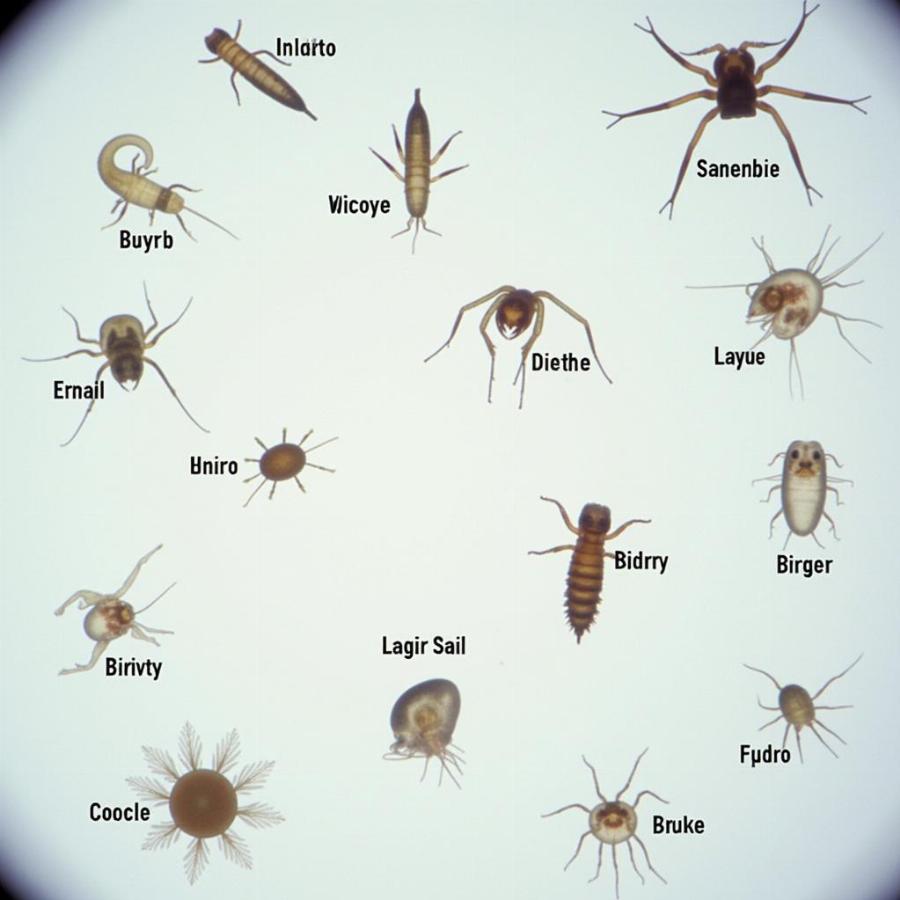If your dog just snagged a fly mid-air, you’re probably wondering if it’s a cause for concern. “My dog ate a fly” is a common search query, and thankfully, in most cases, the answer is no. A single fly won’t usually harm your furry friend. This article will explore the reasons why, when you should be concerned, and what preventative measures you can take.
Why Dogs Eat Flies (and Other Bugs!)
Dogs, especially puppies, are naturally curious and explore the world with their mouths. Flies buzzing around can trigger their prey drive, leading to a quick snap and a swallowed insect. This is usually harmless. Think of it as a crunchy, protein-rich snack, albeit a rather unsavory one to us. Some dogs also enjoy the chase and the satisfying snap of catching a fly. It’s a little game for them.
Are Flies Harmful to Dogs?
Most common houseflies are not toxic to dogs. However, there are some potential risks associated with your dog eating flies, especially in larger quantities.
Potential Risks
- Stomach Upset: While one fly isn’t likely to cause problems, consuming a large number of flies can lead to vomiting or diarrhea. This is usually temporary and resolves on its own.
- Parasites: Flies can carry parasites, which can be transmitted to your dog if ingested. These parasites can cause a range of health issues.
- Pesticides: If the flies have been exposed to insecticides, your dog could ingest these toxins as well. This is a more serious concern and requires veterinary attention.
 Ký sinh trùng ở chó
Ký sinh trùng ở chó
When to Call Your Vet
While eating an occasional fly isn’t cause for alarm, certain situations warrant a call to your veterinarian. Contact your vet if your dog exhibits any of the following symptoms after eating a fly:
- Prolonged vomiting or diarrhea: If your dog vomits or has diarrhea for more than 24 hours, seek veterinary care.
- Lethargy or weakness: These could be signs of a parasitic infection or insecticide poisoning.
- Loss of appetite: A sudden disinterest in food could indicate an underlying health problem.
- Swelling or hives: These are signs of an allergic reaction.
Preventing Fly Consumption
While you can’t completely stop your dog from catching the occasional fly, you can minimize their exposure and the associated risks.
- Fly control: Keep your home and yard clean to reduce fly populations. Use fly traps, screens, and other methods to keep flies away. natural bug repellent for dogs can also be helpful.
- Training: Teach your dog the “leave it” command. This can be helpful in redirecting their attention away from buzzing flies.
- Environmental enrichment: Provide your dog with plenty of toys and activities to keep them occupied and less likely to chase flies. the dog house menu can offer some ideas for treats and toys.
Conclusion
In most cases, a dog eating a fly is not a cause for concern. However, being aware of the potential risks and knowing when to contact your veterinarian is crucial. By taking preventative measures, you can minimize your dog’s exposure to flies and keep them healthy and happy. Remember, a clean environment and good training are key to a fly-free (or at least fly-reduced) existence for your furry friend.
FAQs
- Is it normal for dogs to eat bugs? Yes, it’s a natural instinct for dogs to chase and eat bugs.
- Can flies make my dog sick? While a single fly is unlikely to cause illness, large numbers can lead to digestive upset or transmit parasites.
- What should I do if my dog eats a fly that’s been sprayed with insecticide? Contact your veterinarian immediately.
- How can I stop my dog from eating flies? You can’t eliminate the behavior entirely, but you can reduce fly populations and train your dog to “leave it.”
- Are all flies dangerous for dogs? No, most common houseflies are not toxic, but some species can carry parasites.
- What are the signs of a parasitic infection in dogs? Signs can vary but may include vomiting, diarrhea, lethargy, weight loss, and changes in appetite.
- Can my dog be allergic to flies? Yes, some dogs can develop allergic reactions to fly bites or ingestion.
Other Questions You Might Have
- What happens if a dog eats fly eggs? what happens if a dog eats fly eggs
- What are the best dog eye wipes for cleaning around the eyes? best dog eye wipes
Beaut Dogs: Your Trusted Source for Dog Care Information
Beaut Dogs is dedicated to providing comprehensive and reliable information on all aspects of dog ownership. From breed selection to health care, we’re here to help you navigate the world of canine companionship. When you need expert advice, contact us at Email: [email protected] to receive detailed and accurate answers from Beaut Dogs.